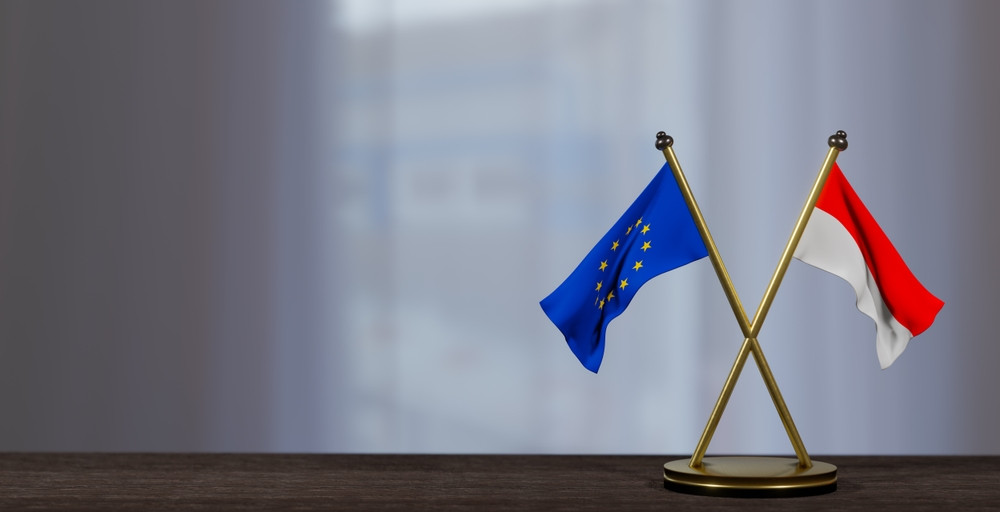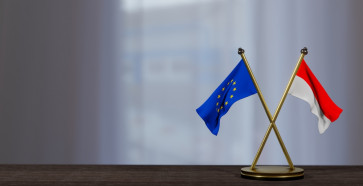Popular Reads
Top Results
Can't find what you're looking for?
View all search resultsPopular Reads
Top Results
Can't find what you're looking for?
View all search resultsEU and Indonesia need to listen to each other first
The EU and Indonesia must unite to uphold the rules-based order amid Russian aggression and looming US-China tensions while providing an alternative.
Change text size
Gift Premium Articles
to Anyone
I
attended the European Union-Indonesia Track 1.5 Dialogue in Florence in December, visited EU institutions in Brussels through the EU Visitor Program and joined discussions on the Indo-Pacific and Global South. A consistent message emerged from all the discussions: the EU and Indonesia must unite to uphold the rules-based order amid Russian aggression and looming United States-China tensions, while providing an alternative.
But is it in our interest? Can we do it? How should we proceed?
First, upholding a rules-based order is in Indonesia's and the EU's interest. Stability is essential for Indonesia's ambition for 8 percent economic growth over the next five years and mitigates risks from a potential US-China trade war. Moreover, President Prabowo Subianto’s free and active foreign policy will mean Indonesia needs a reliable partner, not someone who will challenge the established practices and order.
For the EU, stability and order will counter the effect of the Russian invasion of Ukraine and the internal European tensions. The EU also needs to show that it can champion the global order without being dependent on and being a follower of the US.
However, the question arises: whose rules will prevail? The Western liberal order has been criticized for its inconsistency, especially regarding Palestine. As Indian scholar Atul Mishra argued in the Hindustan Times (Dec. 29, 2024), the West’s duality in Ukraine and Palestine has damaged the global order and created the impression that non-Western countries such as China and Russia offer alternative orders.
Yet, alternatives like BRICS focus more on criticizing the West than providing tangible options. Thus, Indonesia and other Global South nations should advocate for a fairer rules-based order rooted in shared principles, such as equality between great powers and smaller countries, and essential norms, such as territorial sovereignty, human rights and democracy. In this case, amid the notion of the West against BRICS, the Global South needs an alternative order. Indonesia and the EU can be essential to the discourse on this new order.
Second, can the EU and Indonesia create this order? The EU is recognized as a normative power, championing peace, liberty, democracy, the rule of law and human rights. Meanwhile, Indonesia's postcolonial activism cements its role as a Global South leader, from hosting the 1955 Bandung Conference to cofounding the Non-Aligned Movement. Together, they have the history and values to promote sovereignty, democracy and human rights.



















